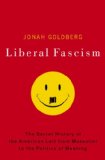Congressional Issues 2010
SOCIETY
Fascism
|
Congress should:
- repudiate the last 90 years of Congressional fascism
The United States is a fascist nation. Our politicians are
fascists.
The word "fascist" is an "alarmist"
word. It is often used on this website to describe not the most
monstrous forms of fascism, but the embryonic
stages of fascism. R.J. Rushdoony observes,
Mussolini lacked a radical commitment to anything other
than himself. He recognized this same trait in other men. He
knew that an either-or commitment is what men flatter
themselves into believing they hold, but he knew that in truth
he and other men wanted to eat their cake and to have it too.
Men were practical atheists while practicing churchmen. They
defended the free market while seeking socialistic subsidies.
They championed freedom while asking for a benevolent slavery.
They wanted socialism with freedom, religion without the
responsibilities of faith, and private property with all the
imagined benefits of socialism. The meaning of such a desire
is fascism.
Having said that, however, we must say that the United States
is a monstrously fascist nation. The vast majority of America's
Founding Fathers -- Alexander
Hamilton being an exception -- would agree with this claim.
They took up arms against a far less developed and less
monstrous form of fascism in 1776.
The Face Doesn't Matter
|

|
 
|
|
National Fascist Party of
Italy's
headquarters in Rome |
Modern Fascism:
"I feel your pain"
"You deserve a break today"
"It's your right." |
|

|

|
|
"Fasces" from the
shield of the
Partito Nazionale Fascista |
"New Deal"
fasces,
Roosevelt Dime |
- The
Fascist Threat - June 19, 2012 by Llewellyn
H. Rockwell Jr. - Mises Daily
- Fascism:
The Concise Encyclopedia of Economics | Library
of Economics and Liberty
- Who
Is "Fascist"? By Thomas Sowell
- Good Fascists and
Bad Fascists - Mises Institute
- Jonah
Goldberg: Liberal Fascism

- The Faces of
Janus: Marxism and Fascism in the Twentieth Century
To argue
that Soviet communism, Italian fascism, and German Nazism were
all branches from a common source in collectivism and
socialism has been one of the great taboos of the 20th
century.
Among many intellectuals, and not
only among those on the political left, the consensus has been
that Soviet communism, no matter how disappointing in
practice, was an amoral, idealistic, and “progressive”
attempt to bring political harmony, social justice, and
economic equality to all mankind. Fascism and Nazism, on the
other hand, were manifestations of reactionary, capitalist
forces attempting to maintain their system of social injustice
and economic exploitation through dictatorship, violence, and
war.
Now A.
James Gregor ,
one of the leading authorities on the history and ideas of
Italian fascism, not only explains the socialist and Marxist
roots of fascism in the years immediately following the First
World War, he also shows the fascist influence on communist
regimes from Lenin and Stalin in the Soviet Union to Mao
Zedong in China. ,
one of the leading authorities on the history and ideas of
Italian fascism, not only explains the socialist and Marxist
roots of fascism in the years immediately following the First
World War, he also shows the fascist influence on communist
regimes from Lenin and Stalin in the Soviet Union to Mao
Zedong in China.
- Three New Deals: Why
the Nazis and Fascists Loved FDR - David
Gordon - Mises Institute
Now here is the truly depressing news:
Fascism, socialism, and communism are U.S.
exports.
Americans like to think that The United States is a good and
great nation because we oppose communism, socialism, and
fascism. While you and I might oppose fascism, liberal elites in
New York and Washington D.C. think-tanks have long believed in
and promoted big government: world government, fascist
government, socialist government, and communist government.
American universities promote fascism and socialism, and have
granted their prestigious academic degrees to many of the
world's most notorious dictators. These U.S. academic and
political elites, constantly moving in and out of government
positions, are fascist and have had a world-wide influence. It
is regrettable but necessary to admit that fascism is a U.S.
export. Hitler and Mussolini both had the initial support of
liberal elites in America, and were inspired by them.
This article, "Servile
Nation," gives important examples.
In addition to the ideological support from think-tanks and
universities, fascism and communism have both received economic
and military assistance from the U.S.
Of course there are parts of the U.S. government that
either say they are against collectivist governments like
fascism or communism, or might actually be working against
fascism; and many individuals in government are genuinely
opposed to fascist excesses. But this is a classic case
of the right hand not knowing what the left hand is doing. While
one arm of the federal government is sending our boys to fight a
dictator, another arm of the federal government is selling arms
to the dictator to reward campaign contributors from the
military-industrial complex. (Note: there are not just the
"left" and the "right" arms of the
government: the government is like an octopus with innumerable
fascist tentacles.)
From John T. Flynn's As
We Go Marching (Doubleday, 1944), p. 161-162) ht
(Doubleday, 1944), p. 161-162) ht
| America's
Founding Fathers would consider
today's federal government to be a
"dictatorship." That's not a
word they used; they used the word
"tyranny."
They used the word "tyranny"
to describe a comparatively weak,
benevolent, Christian libertarian
government: The British Empire of
1776. If you lived under that
"tyranny" in 1776, your life
would be taxed and regulated at only a
small fraction
of the amount you're taxed and
regulated today. The Federal
Government of the United States is
unquestionably one of the most
atheistic, tyrannical governments in
the history of the world. By every
reasonable definition and standard, we
live under a fascist dictatorship.
Did the
people of Germany think they were
oppressed by a "fascist
dictatorship?" Not the majority. They
Thought They Were Free .
More. .
More.
|
|
|
[Fascism] is, put briefly, a system of social organization in
which the political state is a dictatorship
supported by a political elite and in which the economic society
is an autarchial capitalism, enclosed and planned, in which the
government assumes responsibility for creating adequate
purchasing power through the instrumentality of national debt
and in which militarism is adopted as a great economic project
for creating work as well as a great romantic project in the
service of the imperialist state.
Broken down, it includes these devices:
- A government whose powers are unrestrained.
- A leader who is a dictator, absolute in power but
responsible to the party which is a preferred elite.
- An economic system in which production and distribution
are carried on by private owners but in accordance with
plans made by the state directly or under its immediate
supervision.
- These plans involve control of all the instruments of
production and distribution through great government bureaus
which have the power to make regulations or directives with
the force of law.
- They involve also the comprehensive integration of
government and private finances, under which investment is
directed and regimented by the government, so that while
ownership is private and production is carried on by private
owners there is a type of socialization of investment, of
the financial aspects of production. By this means the
state, which by law and by regulation can exercise a
powerful control over industry, can enormously expand and
complete that control by assuming the role of banker and
partner.
- They involve also the device of creating streams of
purchasing power by federal government borrowing and
spending as a permanent institution.
- As a necessary consequence of all this, militarism becomes
an inevitable part of the system since it provides the
easiest means of draining great numbers annually from the
labor market and of creating a tremendous industry for the
production of arms for defense, which industry is supported
wholly by government borrowing and spending.
- Imperialism becomes an essential element of such a system
where that is possible—particularly in the strong states,
since the whole fascist system, despite its promises of
abundance, necessitates great financial and personal
sacrifices, which people cannot be induced to make in the
interest of the ordinary objectives of civil life and which
they will submit to only when they are presented with some
national crusade or adventure on the heroic model touching
deeply the springs of chauvinistic pride, interest, and
feeling.
Where these elements are found, there is fascism, by whatever
name the system is called. And it now becomes our task to
look very briefly into our own society and to see to what extent
the seeds of this system are present here and to what degree
they are being cultivated and by whom.
In traditional Christian morality a
good end never justifies an evil means, and even if it
did, an evil means never procures a good end that lasts.
A strikingly relevant case in point was the Fascist
government in Italy. Mussolini’s state banned
abortion, birth control, and homosexual activity. As a
Catholic I hold these things as intrinsically evil and
their curtailment good. However, supporters of Italian
fascism, even those who supported it primarily for the
advancement of these moral issues, are responsible for
facilitating a cataclysmic evil. This evil culminated in
Catholics sheepishly submitting to national conscription
and participation in an unjust and horrifying war. In
addition, it led to the subsequent weakening of Catholic
culture, morals, and faith in Italy and to the final
eradication of European Christendom. The result now
being a de-Christianized Italy that fully accepts those
very moral issues some sought to address by compromising
with the fascist regime. If even a fraction of the
effort and sacrifice that was squandered by Italian and
other Catholics in World War II had instead been brought
to missionary efforts the world would be looking at the
rebirth of Christendom rather than its demise.
~ Christians
and the Pro-Life Ploy | G.C. Dilsaver |
next: Socialism
|
|